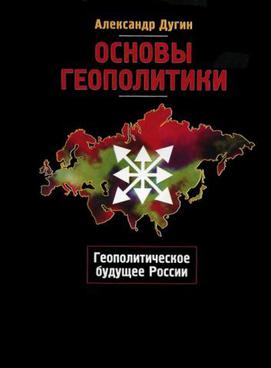Related Research Articles

Azerbaijan, officially the Republic of Azerbaijan, is a transcontinental and landlocked country at the boundary of West Asia and Eastern Europe. It is a part of the South Caucasus region and is bounded by the Caspian Sea to the east, Russia's republic of Dagestan to the north, Georgia to the northwest, Armenia and Turkey to the west, and Iran to the south. Baku is the capital and largest city.

The Republic of Azerbaijan is a member of the United Nations, the Non-Aligned Movement, the Organization for Security and Cooperation in Europe, NATO's Partnership for Peace, the Euro-Atlantic Partnership Council, the World Health Organization, the European Bank for Reconstruction and Development; the Council of Europe, CFE Treaty, the Community of Democracies; the International Monetary Fund; and the World Bank.

Geopolitics is the study of the effects of Earth's geography on politics and international relations. Geopolitics usually refers to countries and relations between them, it may also focus on two other kinds of states: de facto independent states with limited international recognition and relations between sub-national geopolitical entities, such as the federated states that make up a federation, confederation, or a quasi-federal system.

The New Azerbaijan Party is the ruling political party in Azerbaijan, founded on 21 November 1992 under the leadership of Heydar Aliyev. After his election as President of Azerbaijan on 3 October 1993, and the party's victory at 1995 parliamentary elections, YAP became the ruling party, a position it has held since. President Ilham Aliyev has been chairman of YAP since its 3rd congress held on 26 March 2005.
The culture of Azerbaijan combines a diverse and heterogeneous set of elements which developed under the influence of Iranic, Turkic and Caucasian cultures. Azerbaijani culture includes its cuisine, literature, folk art, architecture and music.
Thomas Goltz was an American author and journalist best known for his accounts of conflict in the Caucasus region during the 1990s. He spent 15 years in and around Turkey and the Caucasus.

Shuvalan FK was an Azerbaijani football club based in Şüvəlan, Baku. The club was dissolved in 2019.
Svante E. Cornell is a Swedish scholar specializing on politics and security issues in Eurasia, especially the South Caucasus, Turkey, and Central Asia. He is a director and co-founder of the Stockholm-based Institute for Security and Development Policy (ISDP), and Research Director of the Central Asia-Caucasus Institute & Silk Road Studies Program (CACI), and joined the American Foreign Policy Council as a Senior Fellow for Eurasia in January 2017.

The following outline is provided as an overview of and topical guide to Azerbaijan:

Parvin Gulam oghlu Darabadi was a Doctor of Historical Sciences, professor at the International Relations Department, Baku State University.

The Foundations of Geopolitics: The Geopolitical Future of Russia is a geopolitical book by Aleksandr Dugin. Its publication in 1997 was well received in Russia; it has had significant influence within the Russian military, police forces, and foreign policy elites, and has been used as a textbook in the Academy of the General Staff of the Russian military. Powerful Russian political figures subsequently took an interest in Dugin, a Russian political analyst who espouses an ultra-nationalist and neo-fascist ideology based on his idea of neo-Eurasianism, who has developed a close relationship with Russia's Academy of the General Staff.

The Ministry of Science and Education of the Republic of Azerbaijan is a governmental agency within the Cabinet of Azerbaijan in charge of regulating the education system in Azerbaijan.

Zaur Shiriyev is an Azerbaijani academic in the field of international affairs. He is an Academy Associate at the Royal Institute of International Affairs in London. He was a senior research fellow at ADA University, Baku, where he worked between May 2014 and March 2017. Prior to joining ADA University, he worked as leading research fellow at the Center for Strategic Studies under the President of the Republic of Azerbaijan (2009–14). He founded and has served as Editor-in-Chief of the first English-language academic journal in Azerbaijan, “Caucasus International”, in 2011. Caucasus International was the first English-language foreign policy journal to which academics from all three of the South Caucasus countries contributed. It is rare if not unique for a dispassionate academic journal to be created by and for the main parties to one of the world’s “frozen conflict zones,” which is what the Caucasus certainly is.

Rahid Ulusel is an Azerbaijani scientist, senior researcher at the Azerbaijan National Academy of Sciences, and professor at Western University (2005-2007).
Azerbaijani libraries are divided into 2 parts: state and non-state. State libraries are National Library, State Library of the Autonomous Republic of Nakhchivan; city, rayon, town libraries; republican scientific and cultural libraries; libraries of the state, government, enterprises and organizations; the Central Scientific Library of the Academy of Sciences of Azerbaijan and its branches. Non-state libraries are municipal libraries, libraries of public associations, private and other libraries of foreign legal entities and individuals, libraries created in accordance with the law.
Elman Nasirov — Azerbaijani political scientist, political commentator, deputy of the National Assembly of Azerbaijan, Director of the Institute for Political Studies at the Academy of Public Administration of Azerbaijan.

Taleh M. Ziyadov – currently serves as the Director-General of "Baku International Sea Trade Port" CJSC, a position to which he was appointed on 17 November 2014, by the decree of the President of the Republic of Azerbaijan. Additionally, on 8 December 2021, he was selected as the president of the Azerbaijan Badminton Federation.

Fariz Akif oghlu İsmailzade is an Azerbaijani scholar and public figure. He currently serves as a deputy in the VII convocation of the National Assembly of the Republic of Azerbaijan. Fariz Ismayilzade has been the Vice Rector of ADA University since 2006 and the Director of the Institute for Development and Diplomacy since 2022.

Institute for Development and Diplomacy (IDD) – An Azerbaijan-based think tank specializing in building connections with communities worldwide engaged in expertise, research, and policy-making.
ADA University Library, a library in Baku, Azerbaijan, was established in 2012 with the opening of ADA University's new campus in the Narimanov district. Located on the university’s campus in Narimanov, Baku, the library is designed across four levels, including a basement floor. The facility features study rooms, a coffee shop, seating areas, and computer workstations, providing a comprehensive environment for academic engagement and research activities.
References
- 1 2 "Editorial Statement". Baku Dialogues.
- ↑ "Университет «ADA» приступил к реализации нового проекта «Бакинские диалоги»". 1news.az (in Russian).
- ↑ "ADA Universiteti "Baku Dialogues" jurnalının yeni nəşrini və yeni veb-saytını təqdim edib". azerbaijan-news.az (in Azerbaijani).
- ↑ "Next volume of ADA University's Baku Dialogues Journal published". Azerbaijan State News Agency .
- ↑ "Between Eurasia and the Middle East: Azerbaijan's New Geopolitics". Central Asia-Caucasus Institute and Silk Road Studies Program.
- ↑ Cornell, S. E. (2020). Between Eurasia and the Middle East: Azerbaijan's New Geopolitics. Baku Dialogues, 6(3), 56-64.
- ↑ "Бакинский процесс: популяризация межкультурного диалога и социальной интеграции в интересах устойчивого мира и развития". Unesdoc Digital Library (UNESCO) (in Russian).
- ↑ "ADA University's Baku Dialogues Journal aggregated in Columbia University database". ADA University .
- ↑ "Baku Dialogues on ISSN". ISSN .
- ↑ "Baku Dialogues on WorldCat". WorldCat .
- ↑ "Baku Dialogues". Columbia University Press .
- ↑ "Historical View of University Libraries in Azerbaijan: ADA University Library Case Study". The International Information & Library Review. 56 (2): 212. 2024 – via Taylor & Francis.